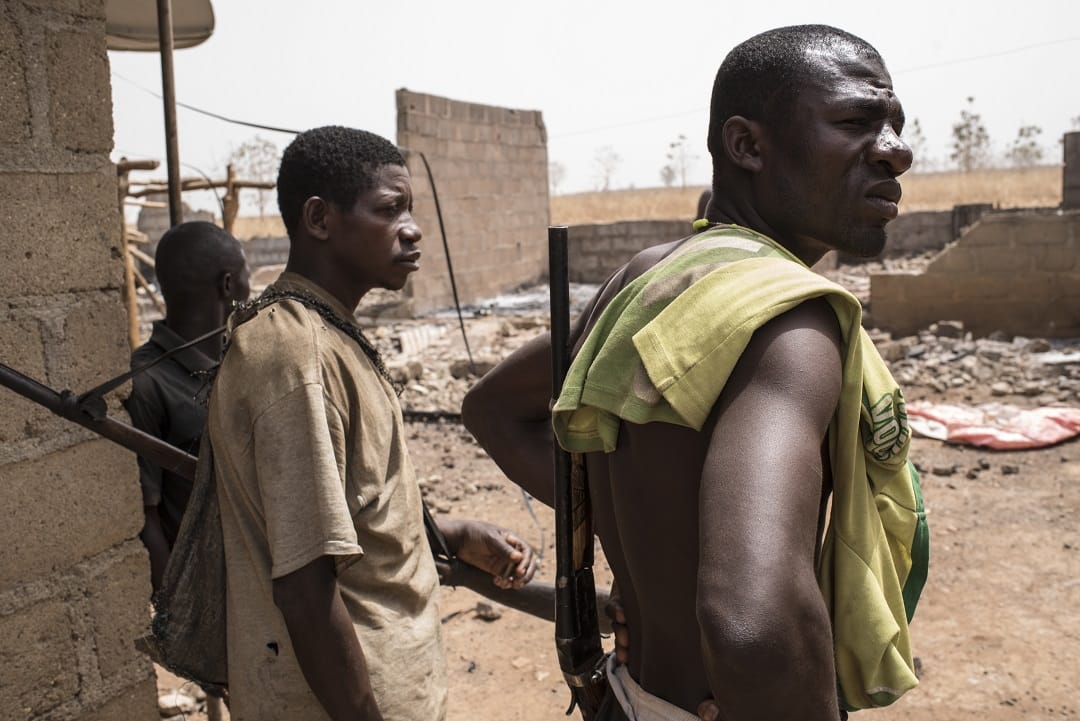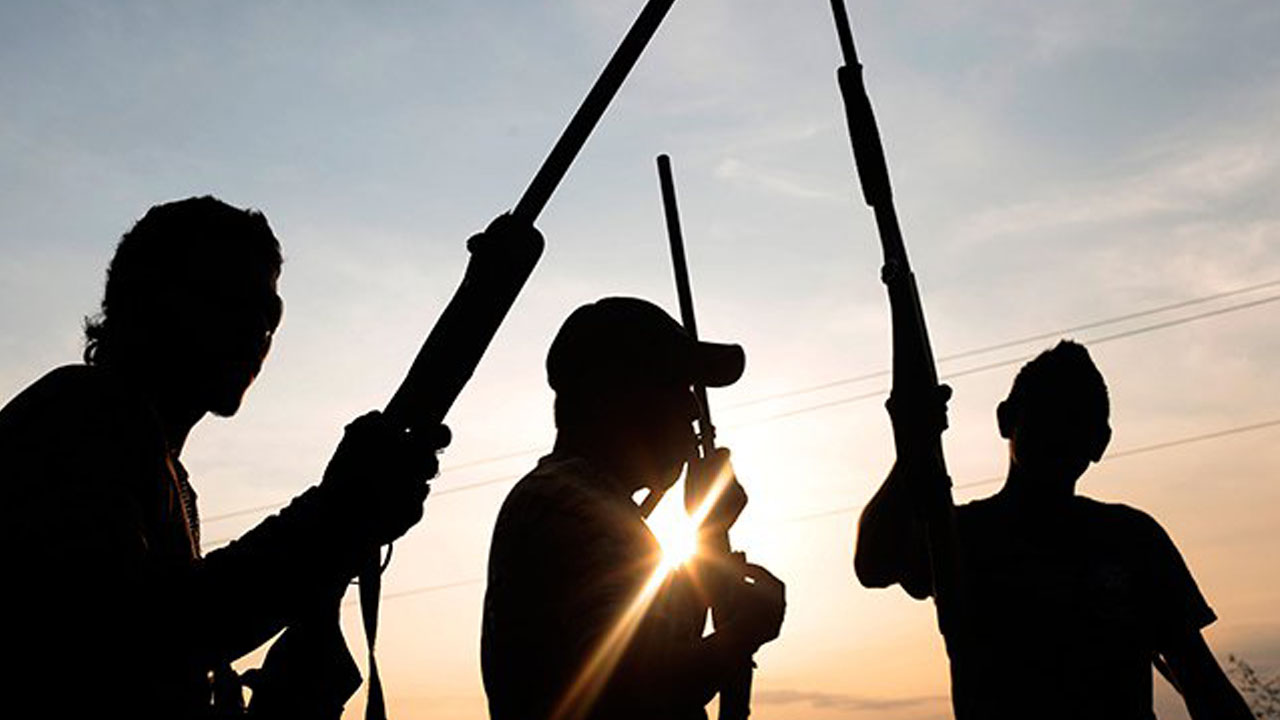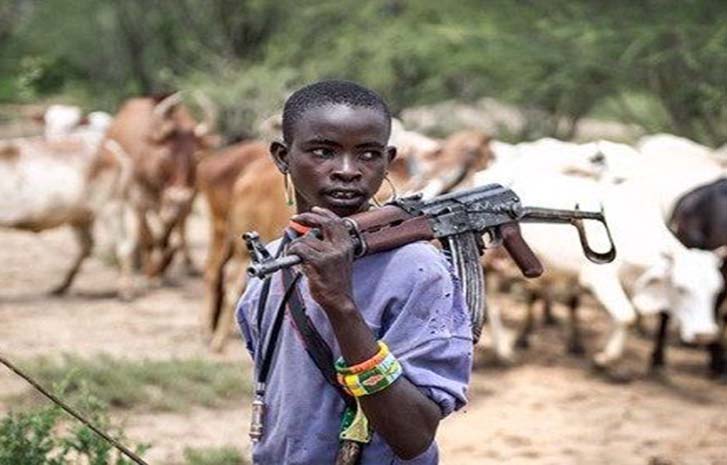Herd instinct is melting down in the heat of political loyalty as a Yoruba Gov. Amosun gives in to cattle colonisation—albeit with a tight upper lip
As the Yoruba Council of Elders (YCE), the Afenifere, and other tribal groups scream no to the cattle colony scheme the federal government recently proposed, Ogun government apparently has a different agenda.
And it’s a sympathetic one Gov Ibikunle Amosun has got no words or, many say confidence, to express.
A baale with lots of guts at Opeji in the Odeda LGA of the state, however, received truckloads of herdsmen from Kaiama, Kwara, coming to settle and graze their cattle in the area January 28.
The state police command said the traditional ruler invited them to be his guests.
“He claimed to have had a long standing relation shop with the herdsmen to settle and graze in the area,” said ASP Abimbola Oyeyeni, Ogun’s police public relations officer in a press release.
The command had to allay the fear of the residents who might have got the jitters as they saw the herdsmen whose encounters with farmers across the nation have been getting bloody since Jan 1.
“The men are under strict surveillance; they have been profiled, and their movement restricted by operatives from the Intelligence Bureau.”
A feel-good clause in the police statement asked “the good and peace-loving people of Ogun to go about their businesses without fear of harassment or molestation”.
But the politics of the incident remains unsettling.
The federal government is soliciting states for hectares of land where herdsmen and their cattle will live and graze permanently—to end frequent clashes between them and farmers. Facilities for dairy, including factories, schools, and health centres will be provided for the herdsmen on the federal government’s account.
The idea has yet to jibe with many state governments.
Outspoken regionalists and critics have also voiced their concern.
Prof. Ben Nwabueze said the cattle colony policy is a continuation of the storied Fulani Jihadist agenda.
“Thus was Hausaland, together with other conquered lands, Islamised, and a caliphate established over Sokoto, with Dan Fodio as its Sultan,” the octogenarian constitutional lawyer and chairman of The Patriots said in a paper he delivered last week.
“That was the price the Hausa paid for their hospitality in granting access to grazing land to the Fulani immigrant settlers.”
The YCE position is just the same: no cow Fulani colony down here.
“We resolved that no inch of Yorubaland will be available for cow colony,” the elders said at the end of a summit in Ibadan on Jan. 26.
The region prefers ranching. The elders believe those in such business will legally acquire land, and will be on a short leash so they don’t crowd out their host communities over the long haul.
Ogun is sure not going to toe that line.
The state is now the first in the entire southwest where something of this Fulani herdsmen colonisation (from Ilorin to Abeokuta), which the YCE fears, has taken effect.
Only 16 of the 36 states of the federation so far have welcomed the policy—and they are all in the north.
In like manner, Gov. Amosun, by reason of his closeness to Aso Rock where the policy was hatched, remains the dearest, among his equals, to President Muhammadu Buhari pushing the policy.
Amosun’s passive accommodation of the idea even rings louder when comparing positions others of Buhari’s loyalists have taken on the cattle colony scheme.
Imo Gov. Rochas Okorocha and Plateau Gov. Simon Lalung have insisted they are not ceding any parts of their states to the federal government to establish cattle colonies.
Up till now, no tiny powers or principalities in those states have undercut the governors’ decision directly or indirectly—unlike the situation in Ogun where the tail now wags the dog.
The chief security officer of the Gateway State has yet to speak officially on the mock colonisation and the nationalism that midwifed it.
Analysts believe this might just be some sort of go-ahead for the federal government—or for the herders themselves.
The relationship between farmers and herders in the state has been relatively peaceful in the last three years—just as the romance between Amosun and Aso Rock has been sizzling over these years.
But some kind of tension—political or tribal—may be lurking in the shadow as the governor chooses where his heart belongs: between his Fulani political ally many describe as clannish and his kinsmen scared of Fulani colonisation.

 Health7 days ago
Health7 days ago
 Crime1 week ago
Crime1 week ago
 Comments and Issues1 week ago
Comments and Issues1 week ago
 Latest1 week ago
Latest1 week ago
 Comments and Issues1 week ago
Comments and Issues1 week ago
 Comments and Issues1 week ago
Comments and Issues1 week ago
 Comments and Issues1 week ago
Comments and Issues1 week ago
 Latest6 days ago
Latest6 days ago






